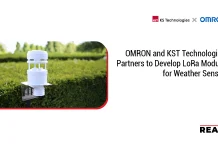FBSciences, which was recently acquired by Valent BioSciences, announces recent trial results further validating the power of their FBS Defense® technology and biopesticide line of leading crop protection solutions, showing superior or equivalent performance to the industry standard but with softer chemistries, improved plant health and crop quality outcomes, and better sustainability for the environment. FBS Defense biopesticide material, FBS Defense 500, has a uniquely broad range of EPA approved uses in a single active ingredient including fungicide, insecticide, plant growth regulator (PGR), and nematicide claims.
Extensive independent trials and studies have been conducted proving the performance of FBSciences’ FBS Defense technology and leading line of biopesticide products. The line currently includes FBSciences’ preventative fungicide Carbon Defense®, registered as FBS Carbon Defense® in California, and nematicide NemBlast™. A recent trial in California on bell peppers comparing FBS Carbon Defense to the industry standard fungicide treatment showed that FBS Carbon Defense numerically outperformed the industry standard treatment, exhibiting an even greater reduction in severity and incidence of powdery mildew when used in rotation with the grower standard.
Also Read: Kroger on Track to Expand Gotham Greens to More Than 1,000 Stores
FBS Carbon Defense also resulted in a 17% increase in total fresh market return on peppers, with a significantly higher percentage of jumbo and extra-large peppers, resulting in the highest ROI for the grower. Another recent trial compared NemBlast against industry standard nematicide treatments, showing that it is highly effective for the control of root knot nematodes and other common tuber pests, including rust fly and wireworms, while also increasing yield in carrots.
Rising temperatures worldwide are expected to continue to increase biotic stress and pest and disease pressure. As temperatures increase, insects and pathogens can flourish, resulting in increased disease and pest outbreaks, increased costs to growers, and lower yields in terms of both quality and quantity. The Food and Agriculture Organization of the United Nations estimates that 20% of all crops grown worldwide are lost annually to plant pests and diseases and predicts that this number will increase in the coming seasons.
SOURCE: PR Newswire






